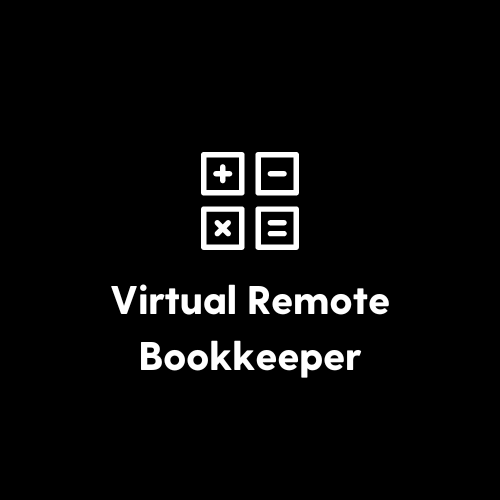
Effective financial management is essential for the success of any dental practice. Dentists often focus on patient care, leaving financial tasks on the back burner. However, a streamlined bookkeeping process can improve cash flow, reduce overhead, and ensure long-term sustainability. In this article, we’ll explore the importance of bookkeeping for dental practices and provide actionable tips on how to optimize financial management.
Why is Bookkeeping Important for Dental Practices?
Dental practices are unique in that they often have high overhead costs, from dental equipment to staff salaries. Bookkeeping ensures that these expenses are managed properly and that you are aware of the financial health of your practice at all times. Some of the key reasons for good bookkeeping include:
- Tax Compliance: Dental practices are subject to various tax regulations. Effective bookkeeping ensures that all income and expenses are properly recorded, making tax filing easier and more accurate.
- Cash Flow Management: A healthy cash flow is crucial for any business. With proper bookkeeping, dental practices can predict cash shortages and take proactive steps to maintain financial stability.
- Profitability Tracking: Bookkeeping provides a clear picture of revenue and expenses, enabling dental practices to make informed decisions on profitability and potential areas of growth.
Common Bookkeeping Challenges for Dental Practices
- High Volume of Transactions: Dental practices process multiple transactions daily, including patient payments, insurance claims, and vendor payments. Managing these transactions can become overwhelming.
- Insurance Billing: Handling insurance payments and ensuring that claims are processed can be a major hurdle for dental practices. Errors in tracking insurance reimbursements can lead to lost revenue.
- Employee Payroll: Dental practices often employ a variety of staff, from hygienists to administrative assistants. Keeping track of payroll and benefits adds an additional layer of complexity to bookkeeping.

How to Optimize Bookkeeping for Dental Practices
- Use Industry-Specific Software Investing in dental practice management software that integrates with bookkeeping tools can streamline operations. Software like QuickBooks or Xero offers specific modules for dental offices, automating tasks such as billing, payroll, and inventory management. Using software specifically designed for dental practices will help minimize human error and improve accuracy in financial records.
- Outsource Bookkeeping Services Dental professionals may not have the time or expertise to handle bookkeeping effectively. Outsourcing bookkeeping services can save time and reduce errors. Professional bookkeepers are familiar with tax regulations and financial best practices, allowing dentists to focus on patient care.
- Track Inventory Regularly Dental supplies are expensive, and managing inventory effectively can help reduce waste and costs. Implement an inventory tracking system that automatically updates when supplies are used. This will help you avoid over-ordering or running out of necessary items.
- Monitor Accounts Receivable Unpaid invoices and delayed insurance claims can impact cash flow. Regularly review your accounts receivable to ensure timely payments from patients and insurance companies. Following up on overdue accounts will help improve your cash flow.
- Maintain Accurate Financial Reports Reviewing monthly financial statements such as profit and loss reports, balance sheets, and cash flow statements will give you a clear understanding of your dental practice’s financial health. This will allow you to make informed decisions and spot any issues before they escalate.
- Plan for Taxes Year-round tax planning should not be a last-minute task. Keep organized records of all deductible expenses, including dental supplies, staff salaries, and office maintenance costs. Work with a tax professional to ensure that your practice is taking advantage of all available deductions, ultimately reducing your tax burden.
- Implement a Budgeting System A well-thought-out budget will help you allocate resources effectively and control expenses. Create a budget that reflects both fixed and variable costs, and adjust it based on the practice’s performance and market conditions.
Benefits of Outsourcing Bookkeeping to Virtual Remote Bookkeeper
At Virtual Remote Bookkeeper, we specialize in providing virtual bookkeeping services tailored to the unique needs of dental practices. Our team understands the complexities of managing a dental office, including insurance billing, payroll, and accounts receivable. We provide comprehensive financial management, allowing you to focus on what matters most: patient care.
Why Choose Us?
- Industry Expertise: We have experience working with dental practices, ensuring that all transactions are accurately recorded and compliant with tax regulations.
- Cost Savings: Outsourcing bookkeeping eliminates the need for a full-time bookkeeper, saving you time and money.
- Custom Solutions: We offer bookkeeping packages designed to meet the specific needs of your dental practice.
Final Thoughts
Effective bookkeeping is essential to optimizing the financial management of your dental practice. By using specialized software, outsourcing your bookkeeping, and staying on top of your financial reports, you can ensure your practice is on solid financial footing. Let Virtual Remote Bookkeeper handle your bookkeeping needs, giving you more time to focus on growing your practice and providing top-notch patient care.


